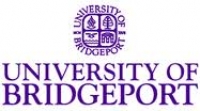The Master of Science in Mechanical Engineering degree program prepares the student for a successful professional career through advanced study in design, development, analysis, manufacturing, and maintenance of mechanical systems for a wide range of industries, including transportation, automation, medical, energy generation, electronic, sports and aerospace.
The program combines core mechanical engineering courses with technical electives that enable the student to increase his/her knowledge and competence in essential skills for Mechanical Engineering while affording sufficient freedom to provide in-depth study in both traditional and contemporary curriculum tracks and explore emerging interdisciplinary areas. The technical areas supported by the department include General Mechanical Engineering, Design Engineering, Manufacturing Engineering and Management, Mechanics and Materials, Thermal Fluid Systems and Sustainable Energy, Biomechanical Engineering, Mechatronics and Automation, and Sports and Aeronautical Engineering. The student is required to design an individualized program of study with the help and approval of his/her faculty advisor to meet his/her academic and career goals.
Customized study plans also allow receiving the Mechanical Engineering M.S. degree while pursuing another M. S. degree in Computer Science, Computer Engineering, Electrical Engineering, Technology Management, and MBA. Two degree students in these two programs should consult their respective advisors to work on their individualized plans.
Students in the M.S. Mechanical Engineering Program will be able to
1. demonstrate the ability to design or analyze a system, component or process to meet desired needs within realistic, contemporary constraints such as health and safety, ethics, performance, sustainability and economics.
2. develop specialized advanced skills in mechanical engineering fields including fluid mechanics, heat transfer, material science, dynamics, vibrations, numerical methods, design and manufacturing.
3. demonstrate the ability to use techniques, skills and modern engineering tools necessary for engineering practice.
4. demonstrate the ability to create, adapt, transfer and integrate existing and emerging technologies into new products, processes and services.
5. develop decision making, risk assessment and problem solving skills considering both economic and other constraints.
6. develop both technical and management oral presentation and written communication skills.


